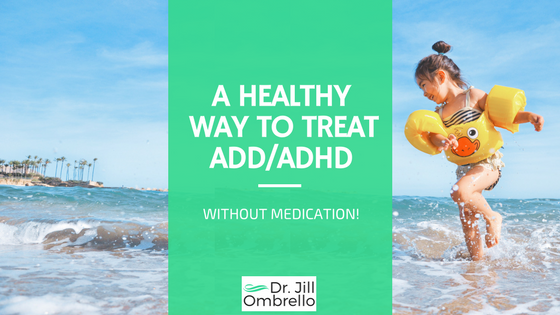Millions of children suffer the symptoms of Attention Deficit Hyperactivity Disorder, or ADHD. Millions of families struggle to show support to their children while prioritizing education. And as they weigh the impossible choice of medicating their young child, or even whether to accept the diagnosis at all, many families feel that there must be a better way.
For decades, ADHD diagnoses have forced concerned parents into a tight, painful corner. The lack of focus, poor memory, and impulsive, irritable behavior which characterize ADHD can seriously stunt development, damaging any child’s chances of growing up happy, healthy, and well-equipped for life. And yet, traditional treatment comes with many risks of its own.
To medicate, or not to medicate is a choice too many mothers and fathers wrestle with. Believe me, as a mother of three myself, I can empathize. No one wants to tamper with the chemical makeup of their child’s growing mind unless there’s no other way; it’s a last-ditch option.
But what if we’re getting it wrong? What if the symptoms that spur pediatricians to diagnose ADHD are actually indicative of an equally important, but much more manageable condition? Could it be possible that, instead of ADHD medication, what millions of children actually need is simply a night of restful, unobstructed sleep?
According to Dr. Vatsal Thakkar, clinical assistant professor of Psychology at NYU’s Langone Medical Center, these questions are more than worthy of consideration, and finding the correct answers can mean the difference between adequate care for children, or a lifetime of misdiagnosis.
Thakkar notes that many symptoms typically associated with ADHD, including disorganized thought/action, inability to pay attention, and unwillingness to sit still, are also representative of insomnia stemming from sleep disordered breathing (SDB), a condition that is actually exacerbated by Ritalin, Adderall, and other ADHD medication. This is especially concerning for those of us with children given the fact that, of the 10,000 doctor-members of the American Academy of Sleep Medicine, only 500 are trained to work in a pediatric capacity.
Evidence also favors another glance into what causes children to exhibit ADHD-like symptoms. Data published in the Journal of Pediatrics studied 11,000 children for six years, and found that children showing conditions symptomatic of SBD, such as snoring, mouth breathing, and apnea, were “40 to 100 percent more likely to develop behavioral problems resembling ADHD.”
If you think there’s a chance that your child might be misdiagnosed, you do have other options.
Fortunately for everyone, SDB is not only treatable, but curable. Using a dental procedure called Healthy Start, caregivers can identify SDB-related issues and provide a painless, natural and non-invasive mouth gear to treat the root-cause for each patient, ensuring a lifetime of easy breathing — and permanent freedom from ADHD symptoms, without medication.
Every kid deserves a childhood free from misdiagnosis and overmedication. As both a patient and provider of Healthy Start treatment, I’m more than happy to offer free consultations for any parent worried that their child’s issue might have been misidentified.

